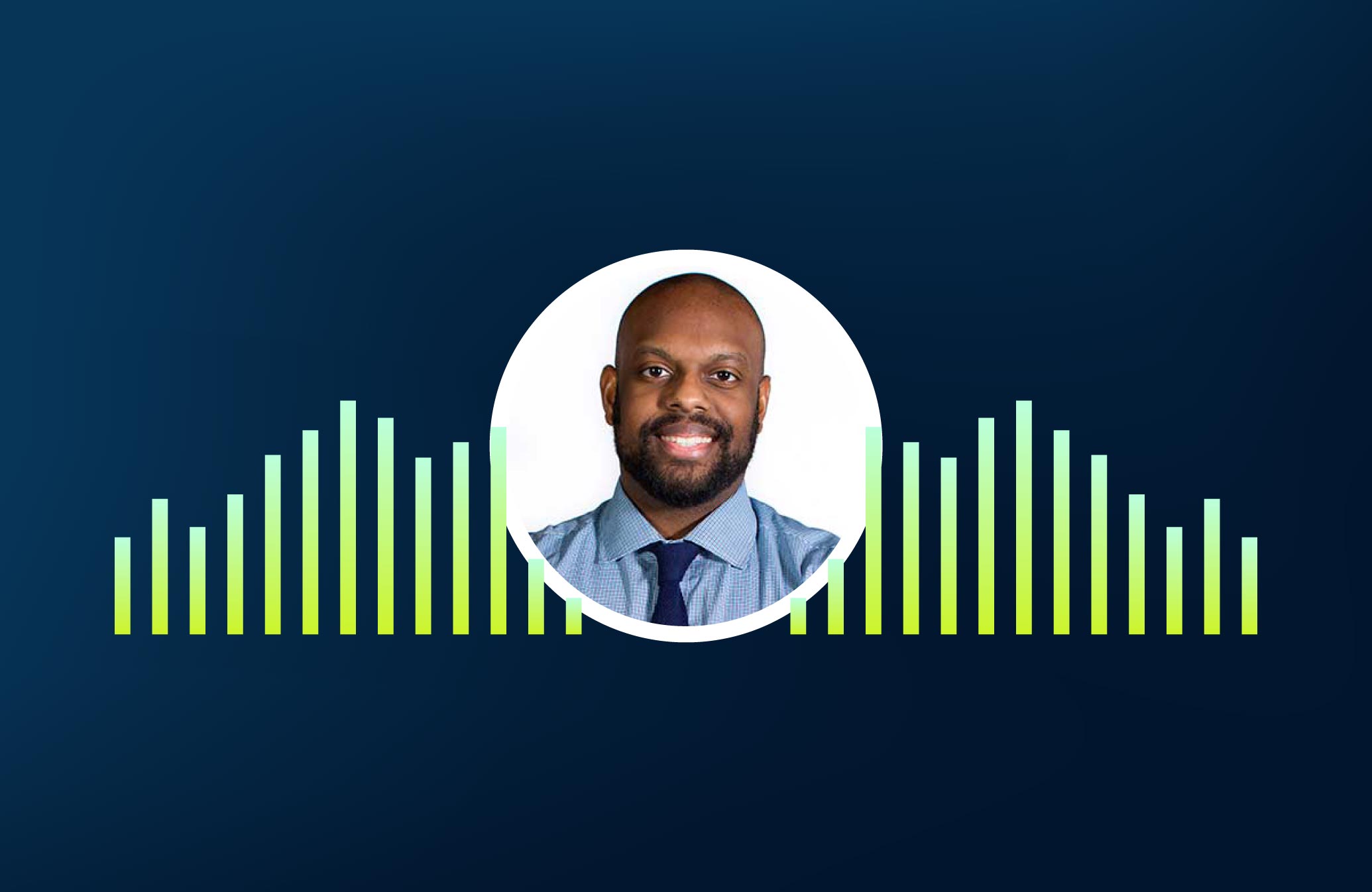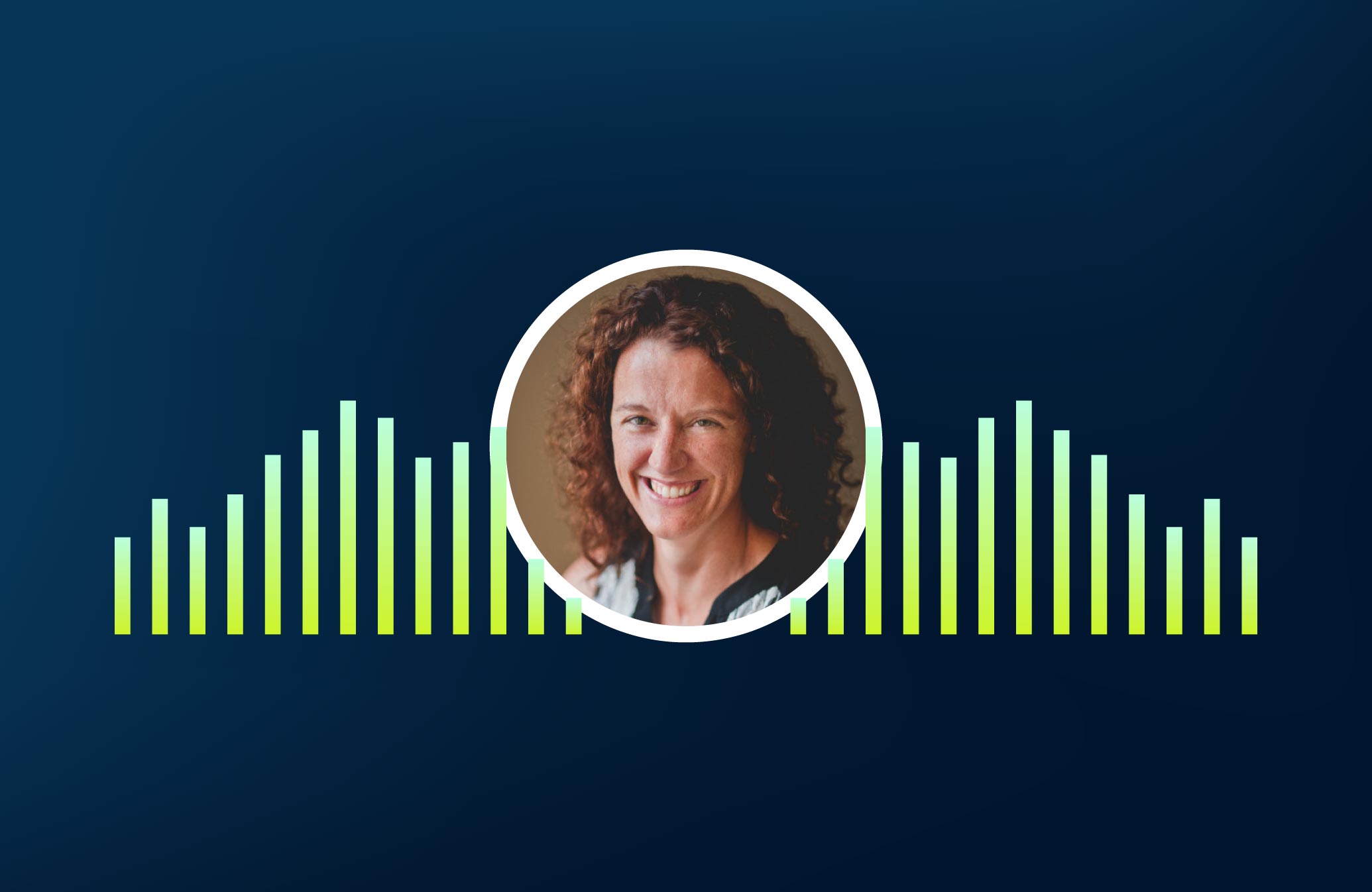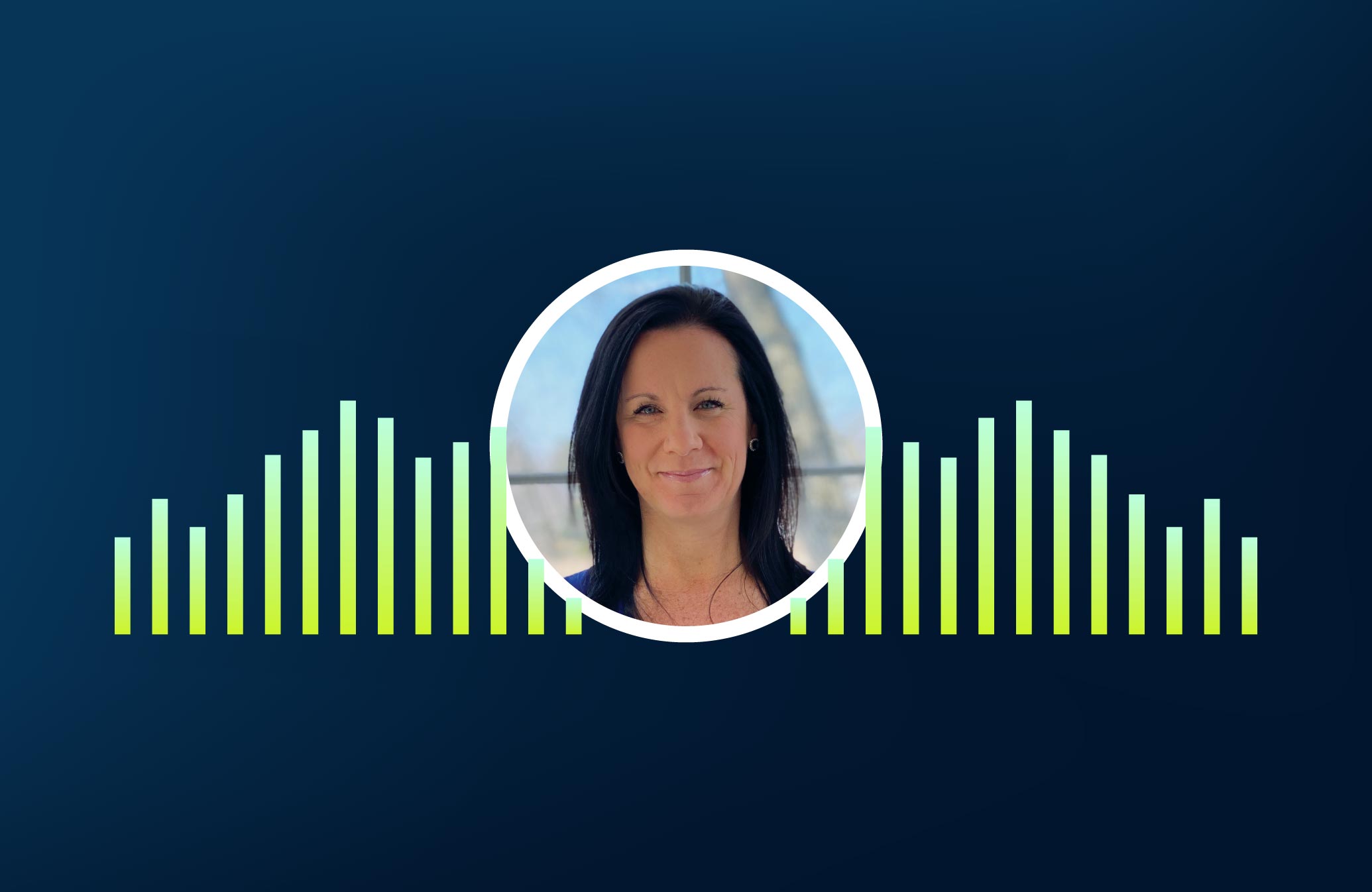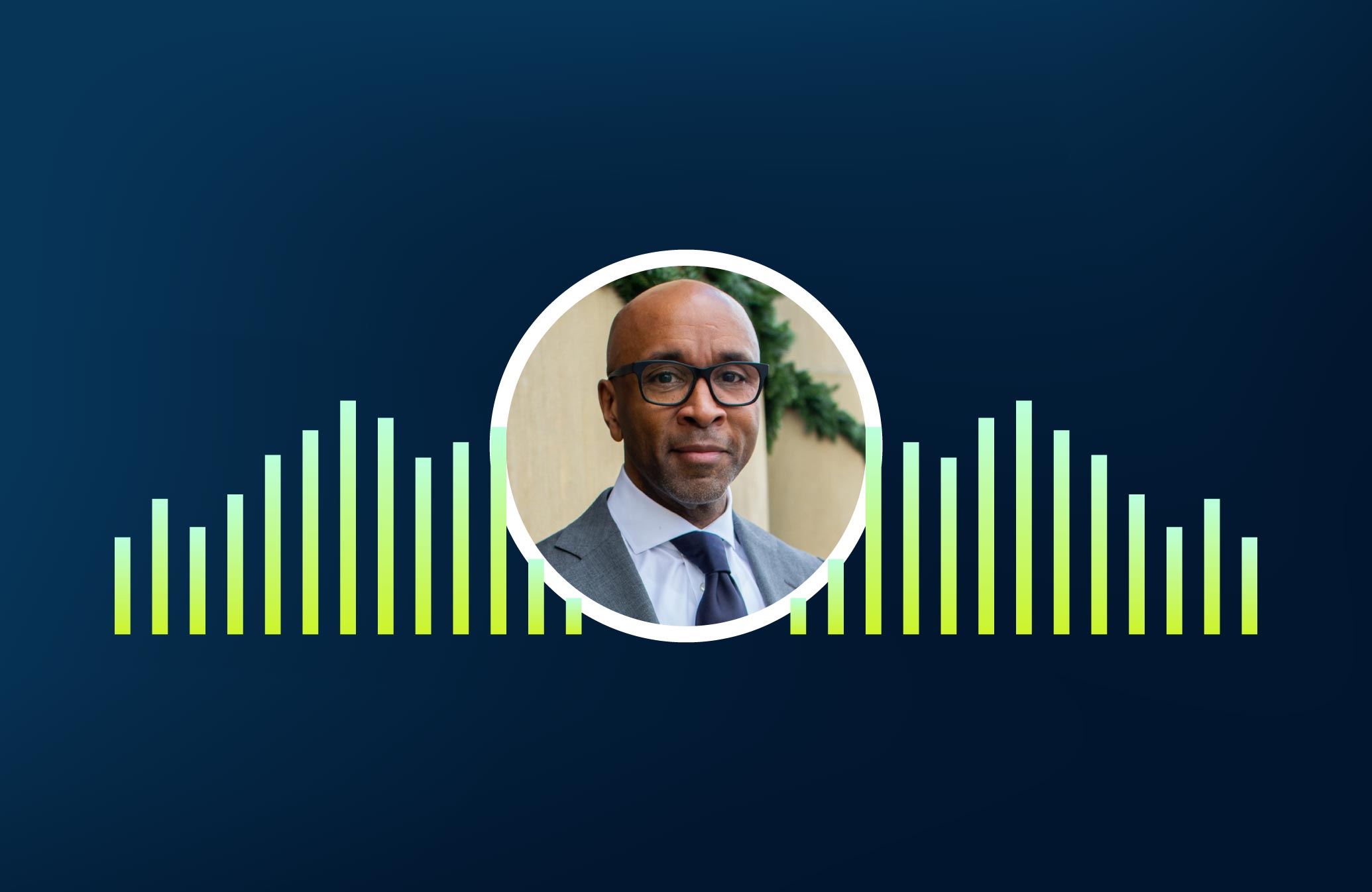Listen Now
Episode Transcript
Announcer [00:00:00] Welcome to RadioRev, podcasting from the heart of healthcare in Minneapolis, Minnesota. This is the podcast for change makers looking to do more than just health engagement. It’s about getting people to take action and do things that actually improve their health. It’s a radical idea, right? So we’re talking with the leaders, innovators, movers, and shakers who are bringing new ideas, inspiring others, and leading the way.
Jenn [00:00:27] Welcome back to another episode of RadioRev. I’m Jenn Dellwo. Thank you for joining us for season two. This series of episodes dives deep into Social Determinants of Health, offering various viewpoints on the topic with a different industry expert each week with the hope that you take away new ideas, perspectives, and are inspired to look at SDoH in a new light from all angles. As a collective, the goal of these conversations is to inspire innovation and motivate the healthcare industry to work together to create meaningful solutions that help people live stronger, healthier lives. Today, we are joined by André Blackman, CEO at Onboard Health. André, welcome to the show. Thanks so much for being here.
André [00:01:03] Thank you so much, Jenn. I’m really happy to be here and jump into this conversation.
Jenn [00:01:08] Yeah, I’m excited. So to kick things off. What’s your favorite ’80 song?
André [00:01:13] Let’s see. I would definitely say “Carry on Wayward Son” by Kansas. And the reason why is I’m a big fan of the show, “Supernatural.” And that was one of the opening theme songs that really introduced me to a lot of classic songs. I’m not even sure if that’s ’80s, per say. It might actually be ’70s. But if I had to choose an ’80s song, it would probably have to be Eurythmics. {music plays}
Jenn [00:02:03] Amazing choices. Even if the Kansas song isn’t from the 1980s, we’re going with it today.
André [00:02:10] Thank you so much.
Jenn [00:02:11] So why don’t we start with you telling us about yourself, a bit about your background, and how you came to head up Onboard Health.
André [00:02:18] So my background is this kind of interesting mix of straight-up STEM, science, tech, engineering, that sort of thing, and public health and communications. And so growing up in the D.C./Maryland area, I was a huge geek. I did the whole thing around chemistry sets. My mom was very focused on giving me all the things I needed to challenge my brain, and just kind of looking at biology and all those different things throughout high school. I had amazing opportunities to do internships at places like Walter Reed and the Naval Research Lab, some materials engineering, aerospace, and did my high school internship at NASA, literally working with an astrophysicist. And that world was definitely in my formative years in high school when I got exposed to those kinds of things. And then I just caught the bug around epidemiology and public health. No pun intended. In college, I went to University Maryland, College Park for aerospace engineering. Obviously, NASA is right around the corner. And I took this elective course around how disease and epidemiology work and learned about how tuberculosis was making a hard comeback and impacting specific communities like the African-American community. And so for me and my engineering brain, trying to figure things out and problem solve, that didn’t really make a lot of sense. I thought, didn’t we eradicate tuberculosis, like, 800 years ago?! I mean, why is that still a thing? And moreover, why is it impacting the African-American community? And so that’s what really pulled me into the whole world of public health. I grew up around a lot of nurses and doctors, but public health made a lot more sense to me, mainly because it was around prevention and preventing large groups of people from getting sick. And that just made a lot more sense to me. And so that’s what pulled me into that world. I changed my major, went into the School of Public Health, and built a really interesting career around communication and strategy as well. And so for the past decade and a half, I’ve been really at the forefront of public health and healthcare innovation. I started the Pulse + Signal blog back in 2007, which seems like eons ago at this point, but really started writing about the intersection of health and technology, digital strategy, and social media, and how that was really changing the landscape across all industries, but really specifically focused on health. And so that’s what really afforded me a platform, being able to advise and do webinars and things of that nature with places like HHS as one, things like AIDS.gov, which was just getting launched and being a voice around social media and public health was really what got me started.
Jenn [00:05:25] Awesome. Thank you for that background. I want to talk a little bit more about Onboard Health. The first time you and I spoke, I read the article that you wrote about what inspired you to start the company. So I’d love for you to talk about that a little bit more, and what some of Onboard Health’s goals are.
André [00:05:41] Yeah, absolutely. And thank you so much for reading that, Jenn, and once again for moving this narrative forward. So for me, my whole curiosity about how things work, and how to best get equipped, and having the resources, the connections to really build a future of health really stemmed from a particular experience for me back in high school when I really got a sense and an experience around what it felt like to not be believed that I was able to do the work that I wanted to do. And so this is where the conversation around diversity, inclusion, systemic racism, bias really comes into play. And that’s what really started me thinking, especially looking back around how so many opportunities can get squashed, especially for young people as they want to build their careers and where they should go. And so I explained that experience in that article. And that also led me to do a lot, as much as I could, to understand how to build things, how to connect people to a mission. All those different things came together. And so for me, working in the healthcare innovation landscape for a number of years, the pivotal year for me for Onboard Health specifically came around in 2016 where I had the amazing opportunity to give the commencement address at my alma mater at the School of Public Health at the University of Maryland. And first and foremost, I was like, “Are you guys sure you want me to be the commencement address speaker when the year before it was literally the surgeon general?” But I was told, “Your trajectory and your experience around entrepreneurship and innovation in public health are exactly what we want the students to hear about this year.” And so that’s exactly what I did. And as I was speaking into the lives of these outgoing students, it really started to dawn on me about the importance of being equipped for the world to come. It wasn’t going to be the traditional landscape that I even graduated in just not that long ago. But it was going to look a lot different, especially seeing this intersection of public health and the social determinants, a lot of upstream issues, and how that was merging together with traditional medicine and healthcare. And I saw that as an opportunity to really start looking at the workforce. And when I gave the commencement address, I started thinking about the students that were going out and what they needed to know, what they need to learn, what they need to work on and do in order to be effective in their work to change the future of health. And so that really planted the seeds in my head for Onboard Health, really looking at the workforce, the talent that was going to be needed to bridge these kinds of opportunities and looking at not only public health and traditional medicine and healthcare, but what are the roles and skill sets that are going to be needed to tackle a lot of these problems from a multidisciplinary and cross-disciplinary perspective. So, who are the people in UX and design thinking or data science or engineering, policy, communications, business development looking at all those kinds of skill sets that are going to be absolutely necessary in order to build a sustainable future of health. And so with that lens alongside of the very important aspect of diversity and inclusion specifically for health and all the things that we’re talking about, it’s absolutely critical to have a workforce that reflects the communities that we have in our society. And I saw that as a huge need and a huge opportunity as well. With that in mind, that’s how Onboard Health got started. And we really got focused on building a community of people that had those kinds of backgrounds or wanted to use their skill sets to build the future of health. And that’s how things got rolling back in 2017. And, that’s the inspiration for the company, to have this community of talented individuals that reflect the diversity of our society, where that’s more women, more people of color, more people from the LGBTQ community who also have traditionally been marginalized in a lot of that care, even still to this day. And so I saw the need for that, especially because hearing from a lot of employees or employers about where to go to find more diverse talent. And I want to really remove that barrier and remove that narrative around ‘there’s a pipeline issue, you don’t know where to go.’ I want to make it really easy for companies to find that talent as well as grow this kind of community. So, right now, Onboard Health is a specialized executive search and advisory firm that’s really dedicated to building the leadership at these companies, specifically venture-backed startups and larger organizations who are building the future of health and making sure that the leadership reflects the diversity of our society and making sure that the goals that we all have when we’re talking about the future of health, making that more equitable and inclusive, which ultimately leads to more inclusive services and products. And so those are the goals that we have at Onboard Health, to not only connect a dynamic workforce together, but also to make sure that a lot of these companies that are using tech for mental health, or chronic disease, or looking at the built environment and food sustainability, all those kinds of things that are moving together to build our future, to have a team that reflects what this society and country look like.
Jenn [00:12:04] I really love that. You’ve touched on this a little bit, and this question may seem obvious, but I’m going to ask it anyways. Why is inclusion and diversity so important in the workplace, and how does that help a company thrive?
André [00:12:18] Those are great questions, and things that we are actively asking ourselves across the workforce right now. I would definitely say specifically in the healthcare landscape as well, it’s so critical because of the services and the products that are being created. We want to make sure that they are speaking the language, that they’re representative of the populations that we want to serve. That just makes sense that we have patients in the general population feeling like they are included in the services and products that are being built. And not only just from a feel-good standpoint. Because that oftentimes has been the narrative around diversity and inclusion, that it’s something that’s morally based, which, there’s some truth to that as well. But as we’re talking about the situation especially right now that we’re dealing with, COVID-19, and the fallout that it’s touching, the economy, small businesses, communities, learning about the situation and what they can do if there’s a literacy issue. Oftentimes there’s a trust issue. As we were talking about earlier with tuberculosis and the impact in the African-American community, that community has had historic inequities and institutionalized racism associated with it. From redlining in communities, and preventing business loans, and funding for communities as well. It’s so important to have a lens around diversity and inclusion specifically for that in business, because we know one of these kinds of products and services that we’re offering, if they don’t include the communities that they’re talking to, oftentimes it’s going to not only fall on deaf ears, but also have really tragic outcomes when it comes to our population’s health. So when it comes to that overall landscape, it’s so incredibly important to make sure that we’re looking at things from that lens and then from a talent perspective and from the workforce, it really helps companies because of the amount of lived experiences that come to the table. As you’re creating these kinds of campaigns or these ventures, we can point to a number of them. In the overall ad industry, there have been so many missteps because there haven’t been people on the team to pull leadership aside or even the leadership themselves to say, “Look, this is probably not going to be a great idea.” And what’s at stake when we’re talking about public health and healthcare is so much more important; we need to absolutely have a lens on that. And so helping a company thrive specifically around having more people represented in the products and the services that you’re creating, it’s a no-brainer as it relates to revenue generation and the brand equity that you have across the board. So, those are some of the high-level aspects of why it’s important and why it helps a company thrive.
Jenn [00:15:34] So the work that you all are doing at Onboard Health ties directly with the theme of this season, which is Social Determinants of Health. Can you explain the correlation?
André [00:15:45] Absolutely. I mean the social determinants where we live, work, and play, looking at this relatively new intersection around those kinds of concepts in traditional medicine and healthcare. So we’re seeing a lot of health systems investing in neighborhoods where they’re at. Once again, as we’re talking to patients and letting them know that they need to do A, B, and C, if we’re releasing them back into the neighborhoods without any kind of context around continuing on their care and things of that nature, once again, with our current landscape around value-based care, it’s very much linked to the longevity and the impact of care. So once again, if we’re looking at the workforce and making sure that companies and ventures represent the communities that they’re serving, there’s going to be more opportunity for trust. There’s gonna be more opportunity to make sure that your services are being used the way that you want them to be used and having the right amount of feedback that keeps it going. And so, with the social determinants and looking at opportunities around food sustainability, there’s the whole food as medicine movement that’s really resurfaced, and there are opportunities to prescribe healthy food. Nutrition now is part of the future of health. Transportation, getting patients to and from their appointments. And so you see companies like Uber and Lyft getting into the transportation landscape. And obviously, with chronic disease and mental health, these are all things that are now opening up the discussion for how expansive health is and how do we keep people healthy, which adds to the bottom line across the board. And so, once again, if you have the leadership that reflects these kinds of communities, it only makes sense from a communications perspective, from a business development perspective. This ultimately creates a sustainable aspect of healthcare that oftentimes gets associated with the social determinants.
Jenn [00:18:00] Yeah. And you’ve touched on this, too, but I think your perspective is unique because you’re not just talking about social determinants in healthcare. There’s something bigger at play, and I think it’s important to acknowledge that. So how do social determinants come into focus at work?
André [00:18:15] That’s a great question. I think even now, literally right now, as we’re starting to see a lot of just negative fallout from the fragility of our economy, just looking at how the workforce ties into whether you’re a new parent at home. And this to me is an example of the social determinants where, are we giving maternity leave and paternal leave the justice that it deserves in order to create strong families and strong communities? This is now a conversation that enters into the workforce and into the workplace. And so that adds to things like mental health and stress. If the workplace and companies are able to have and build more empathy into how they’re treating their employees, that goes the distance as far as longevity and building those trust factors and bonds that move our economy forward. And so, like I mentioned, now we’re starting to see, are people being taken care of with their families at home now that schools are shut down? I mean, with schools shut down you have the kids at home. There’s still an expectation around keeping up with work and things of that nature. And so, even outside of the “specifics around health,” this absolutely creates some questions and dynamics that will ultimately impact health. You know, for freelancers and people that are on the front lines of retail and things of that nature, what now? This is where the social determinants from this kind of perspective come into play. And I think that’s a really important conversation to have right now, especially as we’re looking at, do we have leadership that can say, “Yes, this is actually a big issue for our community here.”? And looking at how to mitigate some of the disparities that actually impact health. Chronic disease and illness oftentimes are the ones that plague underrepresented communities. If we’re looking at access to care and paycheck and salary and the overall livelihood of our workers, this is where health really comes into play. That isn’t just strictly looking at healthcare, but it’s how we live, how we work, where we go to get regenerated around faith, or things of that nature as well. All those kinds of places are in flux right now. And so what are the long-term effects and impacts? This is something that has yet to be seen, but something that we need to be thinking about right now for sure.
Jenn [00:21:12] Absolutely. And with everything changing so quickly, it’s hard to really know where things are going. But if you can look ahead, what do you see as the biggest barrier or barriers to addressing SDoH either in healthcare, at work, or as a whole? Where do you think we can have the biggest impact right now?
André [00:21:33] That’s a great question. I would definitely feel like the biggest impact is to make sure that we’re getting a really clear pathway to understanding how to best serve our communities. Now we’re starting to see companies that are connecting the dots. So with companies like Cityblock Health, really merging technology and community insights, and having people in these regions, face-to-face communication, and really having that direct line and pathway. I think those are the biggest opportunities for impact that we have right now, oftentimes just slowing down and saying, “Okay, how are we actually creating the solutions that we want to see across our population?” And, oftentimes, the conversation goes directly into the technology or the product being built. But now more than ever there’s an opportunity to really understand what the barriers are. So, for example, Dr. Lisa Fitzpatrick, based in Washington, D.C., is the founder of Grapevine Health. What she is doing is really figuring out, with all the innovations that have been taking place and all the talk around how digital health and things of that nature can really make an impact, she’s seeing how that plays out in and across communities from a literacy perspective. How much of the “hype” or the “promises” for impact and solutions really get into the hands of people that need it? And I think that’s a big barrier right now, how does this really translate across communities? We can talk about telehealth and telemedicine all day, but how is that actually getting to the right kinds of people? And so I think spending a lot more time figuring that out, which isn’t always fast—it’s hardly fast—and oftentimes does not have to do with the actual technology, but really figuring out the translation piece. I think that is going to be part of the conversation, especially as we’re talking about Social Determinants of Health, which has gotten really hot over the past year and a half, two years. We’re having those kinds of panels at these large conferences in organizations and events. But what we don’t really see are people from the community. And we can talk about patients as well being at the seats at the table for these innovations and feedback. But I think that’s going to be one of the areas where we can make the best impact, because even with today and what’s going on right now, it’s going to be increasingly more important to cut down the time that it takes to really make solutions worthwhile. We don’t have time to do pilots for one, two, three years. We’ve got to get this thing going. So I would say understanding how your product and solutions actually translate into sustainable impact and feedback from the communities.
Jenn [00:24:55] Yeah, I completely agree. So to wrap up, if you could wave a magic wand and change one thing about our healthcare system, I feel like this is such a big question, or the way we’re talking about social determinants, what would it be?
André [00:25:09] That’s a great question. I would say just to piggyback on that last piece, that we really need to pay attention to the leadership that we have at these kinds of companies that are getting the funding that they need and things of that nature that sound like they’re going to be critical and impactful for things like the social determinants and having a more critical eye on where those things go. And I would say that as it relates to the wider distribution and making sure that once again, they’re reaching the right and intended kinds of people, because I really feel like that piece is going to make sure that there’s longevity at a lot of these kinds of companies and within our healthcare system and overall making sure that the resources don’t go to waste. There’s still that stark difference. Once again, like what we’re seeing right now as far as crisis response and the burden on a lot of frontline healthcare workers. Looking at how we need to address infrastructure is going to be increasingly important, because it’s going to be hard for us to continue layering on the technology and tools and anecdotal evidence when the root and the base and the foundation of the system just does not work for a lot of people. And so, really investing in that structural aspect is going to be really important.
Jenn [00:26:49] So on the personal side, what’s the coolest thing that you’ve done lately?
André [00:26:54] That’s a good question. I think personally it would be having a daddy/daughter dance. I would definitely say that’s the coolest thing for me, because I’ve been really focused on what the next decade or two is going to look like for our society, especially when it comes to health and being able to spend some time with my daughter around things that really matter. I think that’s going to be one of the things that we need to really focus on. And I hate to continue saying in our current situation, but as it comes to isolation and a lot of fear and anxiety and stress that’s happening, what’s really going to be important is figuring out the things that build resilience in our communities and among each other, whether that’s in our families, in our neighborhoods. I think that’s going to be the ultimate innovation, to make sure that we’re spending the time doing the things that recharge us personally, but also reinforce bonds that helped to bring us joy and make sure that we’re taking care of each other. So, from that kind of personal event, it’s made me think about, as one of my friends says, keeping the main thing the main thing.
Jenn [00:28:25] I love that. Well, thank you so much. I really appreciate your time today. If people would like to connect with you, what’s the best way for them to get in touch?
André [00:28:33] Absolutely. I am on Twitter @mindofAndre and head on over to onboardhealth.co to learn more and to keep up with our blog and across social as well. But thank you so much, Jenn, for this opportunity to chat about something that’s very important to me. And I’m really looking forward to seeing how things work out this year as we’re working through all these different situations as well.
Announcer [00:29:01] Thanks for joining us for the RadioRev podcast brought to you by Icario. If you found today’s conversation as informative and energizing as we did, please take a moment and subscribe to the podcast. As always, we invite you to learn more about us and check out all of our content at dev-revel-health.pantheonsite.io/RadioRev.
Inside the Episode
Andre Blackman, CEO at Onboard Health joins the RadioRev podcast to discuss the effects of COVID-19 on the way we work and how it’s impacting social determinants of health. Plus, we dive into the critical importance of diversity and inclusion in the healthcare industry, asking questions like:
- Why is inclusion and diversity so important in the workplace?
- How does diversity help a company thrive?
- How do social determinants of health come into focus at work?
To keep the conversation with Andre going, connect with him on LinkedIn.
“We’re having large scale conversations about SDoH at big industry conferences, but what’s missing are the people. We need to hear more from people in the communities. That’s when we’ll truly have an impact.”
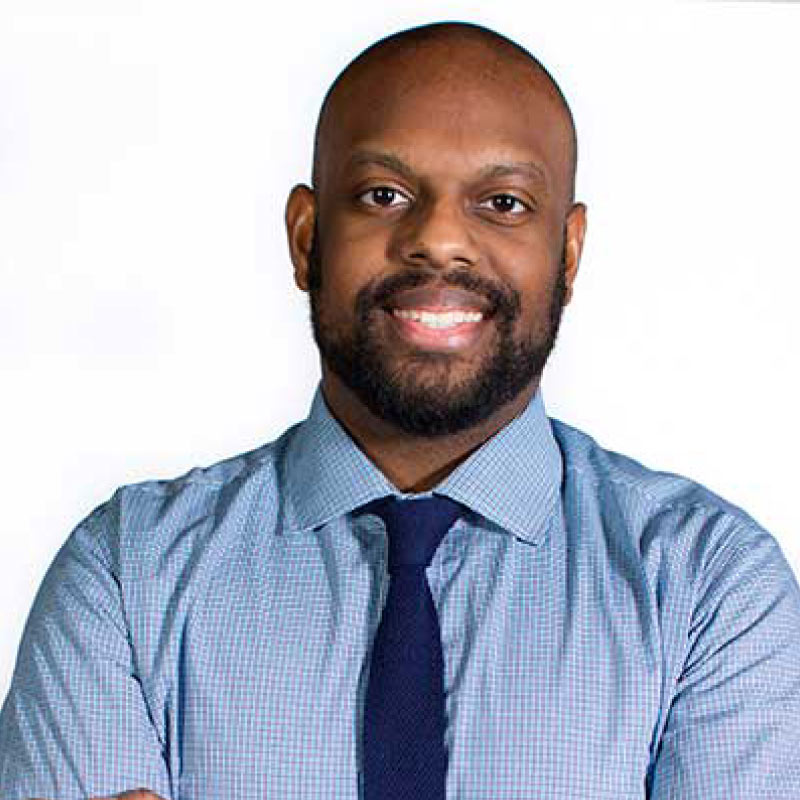
Andre Blackman
CEO at Onboard Health
Can’t get enough of RadioRev?
We’ve got an entire season dedicated to social determinants of health to keep you inspired! Listen to the next episode in the series for another new perspective on SDoH.

